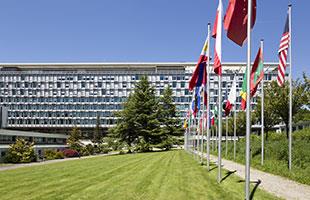

Smallpox
Eradicated in 1980
Overview
Smallpox is an acute contagious disease caused by the variola virus, a member of the orthopoxvirus family. It was one of the most devastating diseases known to humanity and caused millions of deaths before it was eradicated. It is believed to have existed for at least 3000 years.
The smallpox vaccine, created by Edward Jenner in 1796, was the first successful vaccine to be developed. He observed that milkmaids who previously had caught cowpox did not catch smallpox and showed that a similar inoculation could be used to prevent smallpox in other people.
The World Health Organization launched an intensified plan to eradicate smallpox in 1967. Widespread immunization and surveillance were conducted around the world for several years. The last known natural case was in Somalia in 1977. In 1980 WHO declared smallpox eradicated – the only infectious disease to achieve this distinction. This remains among the most notable and profound public health successes in history.

The WHO Smallpox Secretariat based in WHO Headquarters coordinates all smallpox eradication-related and post-eradication activities. These include overseeing permitted research with live variola virus for the development of countermeasures such as vaccine and antivirals. Since the eradication era, safer vaccines and specific treatments have been developed for smallpox and related diseases such as monkeypox. The Secretariat is also responsible for emergency preparedness and manages a smallpox vaccine emergency stockpile in the unlikely event that the disease re-emerges. The Secretariat manages the biosafety and biosecurity inspections of the authorized variola virus repositories as mandated by the World Health Assembly, and ensures annual reporting to WHO Governing Bodies. The Smallpox Secretariat supports WHO Archives in preserving the global history of smallpox and documenting the lessons learned from successful eradication of smallpox.
The WHO Smallpox Secretariat's current roles and responsibilities include:
Variola virus research and development of countermeasures
- organizing annual meetings of the WHO Advisory Committee on Variola Virus Research (ACVVR)
- coordinating review of research proposals for work with variola virus through the ACVVR
- managing relationships with the two variola virus repositories (which are also WHO Collaborating Centres)
- recording, processing and monitoring requests from researchers for variola virus DNA from the 2 repositories under specific rules
- conducting biennial biosafety and biosecurity inspections of the 2 global variola virus repositories
- developing normative guidance regarding research on variola virus DNA and related matters
Emergency preparedness and response
- coordinating and preparing normative guidance on development and use of medical countermeasures for orthopoxviruses
- developing preparedness and response strategies, and tools to implement preparedness measures
- maintaining and managing the smallpox global vaccine stockpile
- coordinating development of a laboratory network for orthopoxvirus detection and diagnostics
- developing normative guidance and response strategies for human monkeypox and other orthopoxviruses
- supporting capacity-building and developing training materials
- contributing to global health security initiatives
Preserving global smallpox history
- overseeing the Smallpox Eradication Programme archives in collaboration with WHO Archives and the WHO Library
- leading on policy discussions and commemorative events regarding smallpox eradication
- reporting annually to the WHO Executive Board and the World Health Assembly
The Secretariat also mobilizes and manages funding for these activities and for ad hoc events as required such as technical consultations and training.
Contact
For any request please send us an email to: SmallpoxSecretariat@who.int
